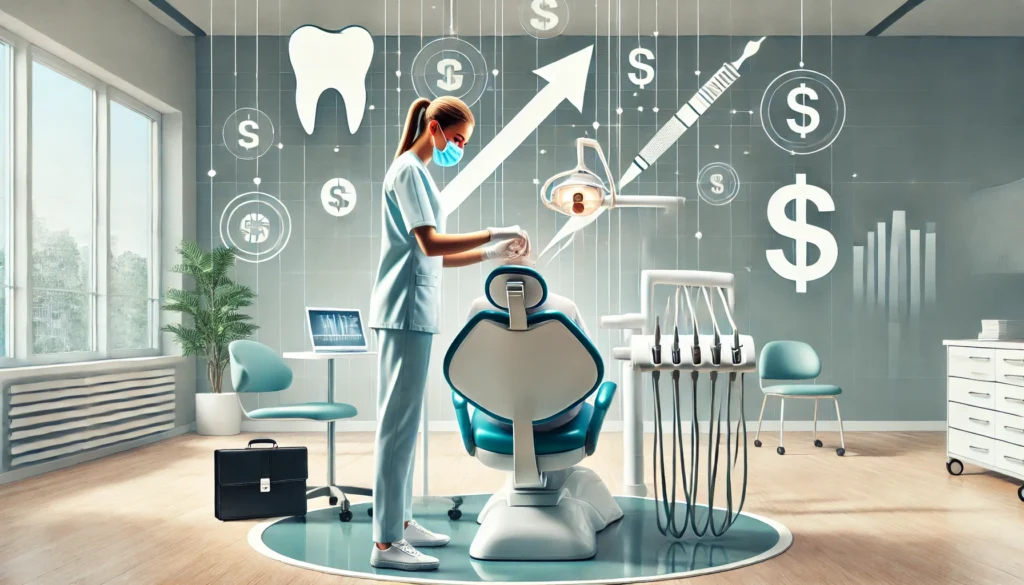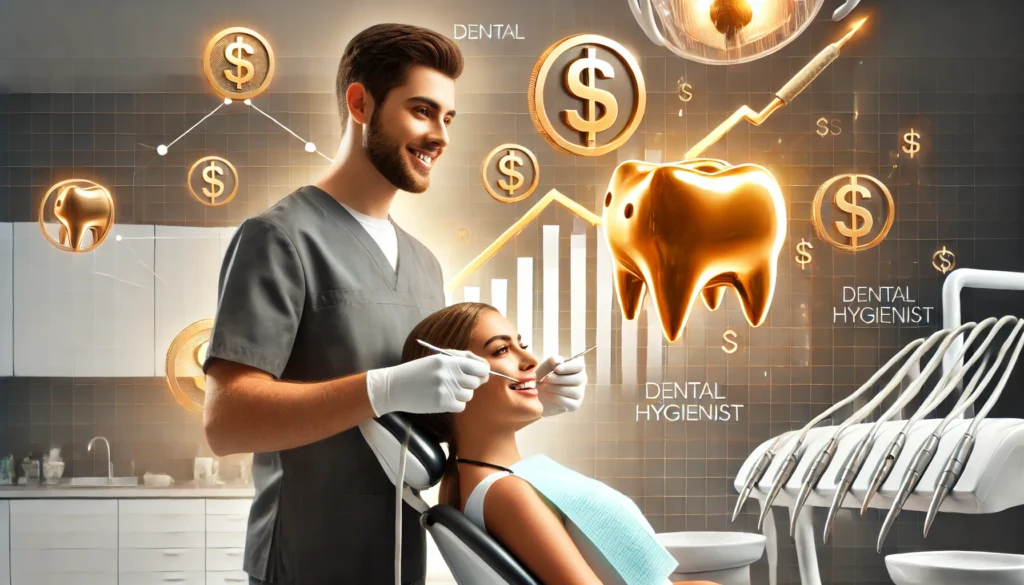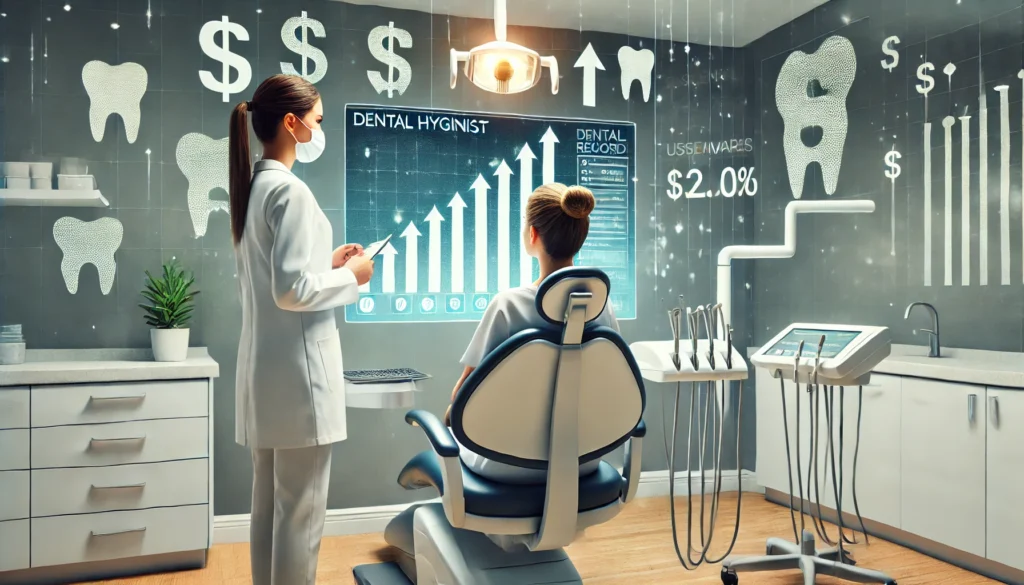3 Reasons Why You Should Negotiate a Raise as a Dental Hygienist Today
As a dental hygienist, you play a critical role in providing quality dental care, yet many in the profession struggle with stagnant wages despite growing experience and skills. Negotiating a raise can seem intimidating, but ensuring your compensation reflects your value is essential. In today’s competitive market, dental hygienists should feel empowered to advocate for themselves and secure the salary they deserve.
This post will explore three key reasons why you should negotiate a raise as a dental hygienist, along with actionable strategies to help you succeed. You’ll have the tools and confidence to boost your earnings and elevate your career.

Reason 1: Your Experience and Skills Are Valuable
As you gain experience in the dental field, your skills naturally improve, which makes you more valuable to your employer. However, unless you take proactive steps, your salary may not reflect these advancements. Here’s why your growing expertise should justify a raise:
Increased Clinical Competence
Over time, dental hygienists hone their skills in patient care, diagnostic techniques, and advanced treatments. If you’ve gained proficiency in tasks like administering local anesthesia, periodontal therapy, or using cutting-edge technology, these abilities warrant a higher salary. Employers value hygienists who can offer a broad range of services efficiently, as it improves patient outcomes and increases practice revenue.
Enhanced Patient Relationships
Dental hygienists often serve as patients’ primary point of contact. Establishing long-term, trusting relationships with patients improves their overall experience and practice retention rates. If you’ve developed a strong patient rapport that leads to consistent appointments and referrals, this is a key value proposition you should highlight during salary negotiations.
Continued Education and Certifications
If you’ve pursued additional certifications or education, such as training in laser therapy, local anesthesia, or pediatric dental hygiene, your employer benefits from your enhanced skills. This continued professional development makes you indispensable to the practice and is a solid reason for a salary increase.

Reason 2: The Dental Hygiene Market Is Growing
The dental industry and the demand for dental hygienists is booming. With an aging population and increased focus on preventative care, now is the perfect time to leverage your role in the growing market to negotiate a raise.
Higher Demand Equals Higher Pay Potential
According to the U.S. Bureau of Labor Statistics, employment of dental hygienists is projected to grow by 9% from 2020 to 2030, faster than the average for all occupations. This surge in demand means employers are eager to retain skilled dental hygienists, giving you more leverage when asking for a raise. Dental practices understand the cost of turnover and are likely to offer competitive salaries to retain experienced professionals.
Shortage of Skilled Hygienists
In many regions, dental offices face a shortage of qualified dental hygienists, giving you an even stronger position to negotiate. Practices want to keep their top talent, especially when hiring and training new hygienists can be costly and time-consuming. Use this as an opportunity to negotiate a raise by showing that your skills are not easily replaceable.
Competitive Edge with Specialization
If you specialize in working with pediatric patients or offering advanced periodontal treatments, you stand out in the job market. Practices often seek out professionals with niche expertise who are willing to pay more to retain them. Leverage this in your negotiation by emphasizing your specialized knowledge and how it benefits the practice.

Reason 3: You Deserve to Be Compensated Fairly for Your Contributions
Many dental hygienists hesitate to negotiate their salary because they feel uncomfortable asking for more money. However, it’s important to remember that your contributions to the practice have a direct impact on its success, and you deserve to be compensated accordingly.
Your Work Drives Practice Revenue
Dental hygienists are a key revenue source for dental practices. You provide essential services, perform routine cleanings, educate patients, and help maintain patient retention. By keeping patients happy and healthy, you directly contribute to the practice’s financial success. A well-supported argument during negotiations could be to showcase how your work has led to increased patient volume or higher patient satisfaction scores.
Avoid Wage Stagnation
Staying in the same job for years without a salary increase can lead to wage stagnation, which impacts your long-term earning potential. Regularly advocating for raises ensures that your salary keeps pace with inflation and your growing skillset. Without these discussions, you could earn less than market value for your role, which can be discouraging and financially limiting in the long run.
Work-Life Balance Perks Can Be Part of Negotiation
When negotiating, remember that compensation isn’t limited to salary alone. Benefits such as additional paid time off, flexible work hours, or continuing education reimbursement can significantly enhance your quality of life. If your employer cannot offer a substantial raise, consider negotiating for these types of benefits as a valuable alternative.

How to Negotiate a Raise as a Dental Hygienist
Now that you understand the key reasons to negotiate a raise, it’s time to take action. Below are some practical tips to help you approach your salary negotiation with confidence:
1. Do Your Research
Start by researching typical salaries for dental hygienists in your region. Websites like Glassdoor, Payscale, and the American Dental Hygienists’ Association (ADHA) provide data on current salary trends. By understanding your market value, you can set realistic goals for your salary negotiations.
2. Track Your Accomplishments
Document your contributions to the practice, whether it’s increasing patient retention rates, improving patient satisfaction, or taking on new responsibilities. Providing concrete examples of your achievements gives you a stronger case when asking for a raise.
3. Time Your Request Strategically
Timing is crucial when asking for a raise. Consider approaching the topic after a positive performance review or when the practice is experiencing financial success. Avoid bringing up salary negotiations for your employer during busy or stressful periods.
4. Practice Your Pitch
Confidence is key in any negotiation. Practice what you plan to say beforehand, and be prepared to answer any counterarguments from your employer. Focus on the value you bring to the practice, and be ready to discuss alternatives if a raise isn’t immediately feasible.
5. Be Open to Negotiating Beyond Salary
If a substantial raise isn’t possible, consider negotiating other perks like increased vacation time, bonuses, or reimbursement for continuing education courses. These benefits can still enhance your overall compensation package.
Conclusion: Take Charge of Your Dental Hygienist Salary
Negotiating a raise as a dental hygienist is possible and necessary to ensure that your compensation matches your value. With the right preparation, research, and strategy, you can make a compelling case for a salary increase. By leveraging your growing experience, recognizing the demand in the market, and advocating for fair compensation, you can secure the pay you deserve.







